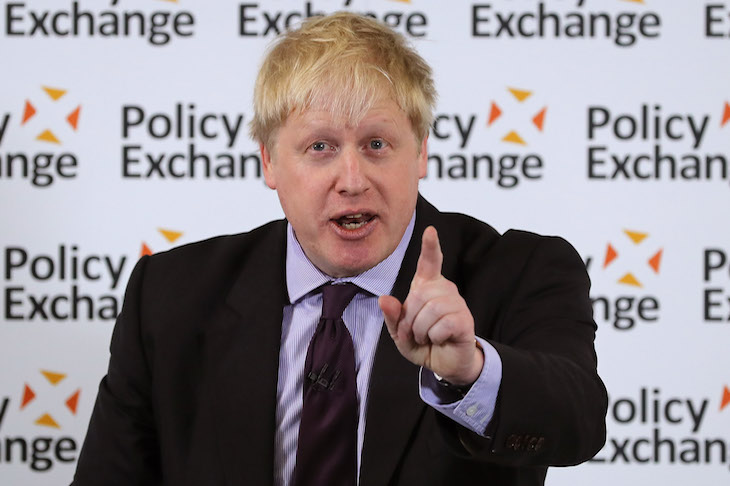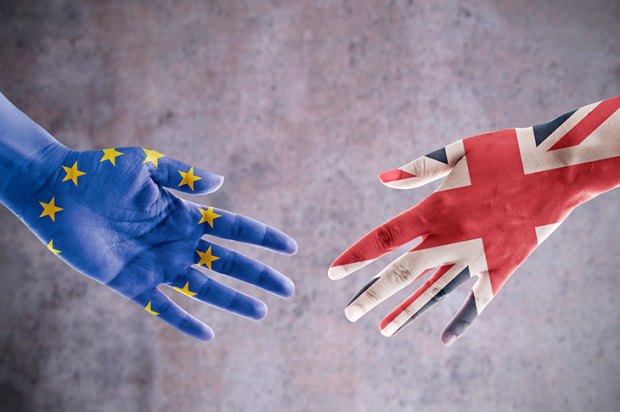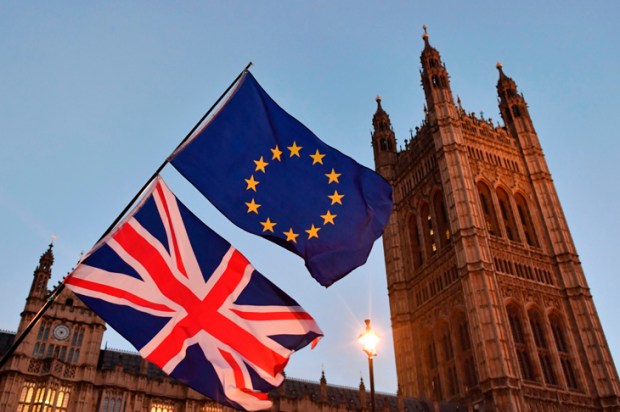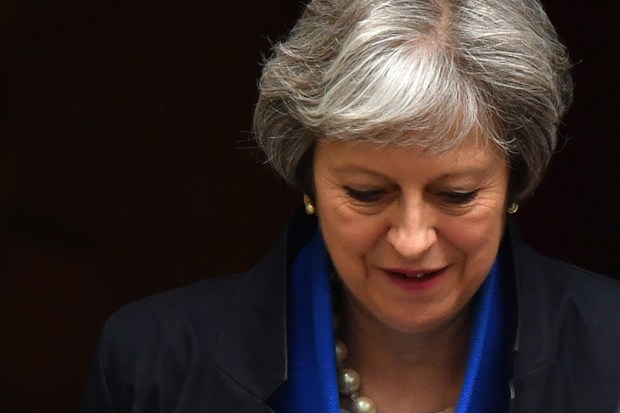In a hung parliament, recess takes on a particular importance for the government. It is a chance for ministers to travel, free from the fear that they might be called back for a crunch vote at any moment. Explaining to your European hosts, for instance, that you have to cancel all meetings with them and go home now, or else the government might fall, doesn’t send quite the right message.
Helpful though it is, recess will get ministers only so far. Those doing the rounds of European capitals this week still don’t have a detailed Brexit position to sell to their counterparts. This is a problem. Next month’s European Council meeting is expected to set out the Commission’s mandate for the next stage of the negotiations, which will cover any UK-EU trade deal. Once these guidelines have been agreed, getting them changed will be nigh-on impossible.
Yet still Theresa May doesn’t appear to be in a rush. Several members of the Brexit inner cabinet expected that their ‘away day’ — where they are supposed to thrash out the details of the UK’s negotiating position — would take place before parliament returns on Tuesday. But it isn’t going to happen until the end of next week. If the Brexit inner cabinet can come to an agreement then, which is far from certain, that will still need to be taken to the full cabinet before May publicly sets out the government’s view.
Those close to May justify this timetable, saying that any deal with the EU will need the support of pretty much every Conservative MP to pass through the Commons. They argue that the willingness of the Labour party to oppose John Major in the 1993 Maastricht confidence vote shows the opposition will never miss an opportunity to bring down a prime minister, even at the risk of diplomatic chaos. So, the logic goes, Tory party unity is in the national interest. May will have to depend on every Tory and Democratic Unionist Party MP.
The theory also goes that the Brexit inner cabinet is a proxy for the wider parliamentary party. If May can get them to agree on a position, then the rest will follow, so it is worth taking the time to try to find an acceptable accommodation.
Exactly what the position will be is not clear. But members of the Brexit inner cabinet, on both sides of the divide, believe that the government is heading towards proposing that the UK stays highly aligned with Europe on goods while diverging on services.
One option being talked about would see the UK remaining compliant with European rules and regulations on all goods other than agriculture. (To put it in technical language, the UK would remain fully aligned with the EU acquis on tariff chapters 25 to 99.) On services, the UK would reserve the right to regulate in its own way. This would lead to divergence from EU rules in fairly short order. In crude terms, this approach could be described as Norway for goods and TTIP — the abandoned US-EU trade deal — for services. The UK would, effectively, be trying to stay in the single market for goods while leaving it, to the extent that it exists, for services.
It isn’t certain that the Brexit inner cabinet will agree to this position. The Brexiteers in it, with Boris Johnson most vocal, are deeply sceptical of the idea. They object to the UK having to continue to accept EU rules on goods at all. The only change, they point out, would be that the UK wouldn’t have a say in the making of these rules. One of the aims of Boris Johnson’s speech this week was to kibosh this plan, which was why he called the UK being a rule taker ‘intolerable’ and ‘undemocratic’. They also worry that the EU could use its power to protect its industries at the UK’s expense. For example, the UK car industry is ahead of its European competitors when it comes to driverless cars. Without the UK present at the table, the fear is that the EU could adopt rules that retard the development of these vehicles.
Those on the other side of this divide, led by the Chancellor, Philip Hammond, view these fears as overblown. They add that no one wants to develop a car just for the UK market. Car companies want to sell into the EU and so they would comply with EU regulations whether the government told them to or not. Those on Hammond’s side also point out that the supply chains are now so intertwined that, in the words of one senior figure, ‘friction is more concerning than tariffs’, and that the best way to prevent friction is this kind of regulatory alignment.
Before Boris Johnson’s intervention this week, it seemed the Brexit inner cabinet was heading towards the UK offering to accept EU rules on goods. The question now is whether his philippic turns Tory opinion against the idea.
One key factor in all this is what it would mean for the UK’s ability to do trade deals with other countries. Theoretically Britain, as it will be outside the customs union, should be able to cut tariffs on EU-compliant manufactured goods from third countries such as the US, India and China. But as senior figures in Whitehall admit, the impact on trade ‘depends on what can be negotiated’.
How would the EU respond to such an offer? On the one hand, it is cherry–picking — which the EU has repeatedly said it is against. But the EU would do well out of this deal. The UK would be effectively staying in the single market for goods, where it has a £96 billion trade deficit with the EU. Even so, Europe’s leaders know that insisting on free movement rights would scupper the deal.
The EU’s understandable concern is to show that there isn’t a deal that is better than membership. It would be able to point out that the UK is only being allowed to trade in goods in this manner because it is committing to accepting rules over which it has no say. But whether that compensates for the blow to the unity of the four freedoms — the free movement of goods, services, capital and people — that this deal would represent is the crux of the matter. Even proponents of this approach inside government accept that there is huge uncertainty about whether the EU would entertain this kind of arrangement. But they also argue that it is only through negotiation that they will find out. Mrs May, however, can only properly start those conversations once she has finished negotiating with her own side on what the UK position should be.
Got something to add? Join the discussion and comment below.
Get 10 issues for just $10
Subscribe to The Spectator Australia today for the next 10 magazine issues, plus full online access, for just $10.
You might disagree with half of it, but you’ll enjoy reading all of it. Try your first month for free, then just $2 a week for the remainder of your first year.















Comments
Don't miss out
Join the conversation with other Spectator Australia readers. Subscribe to leave a comment.
SUBSCRIBEAlready a subscriber? Log in